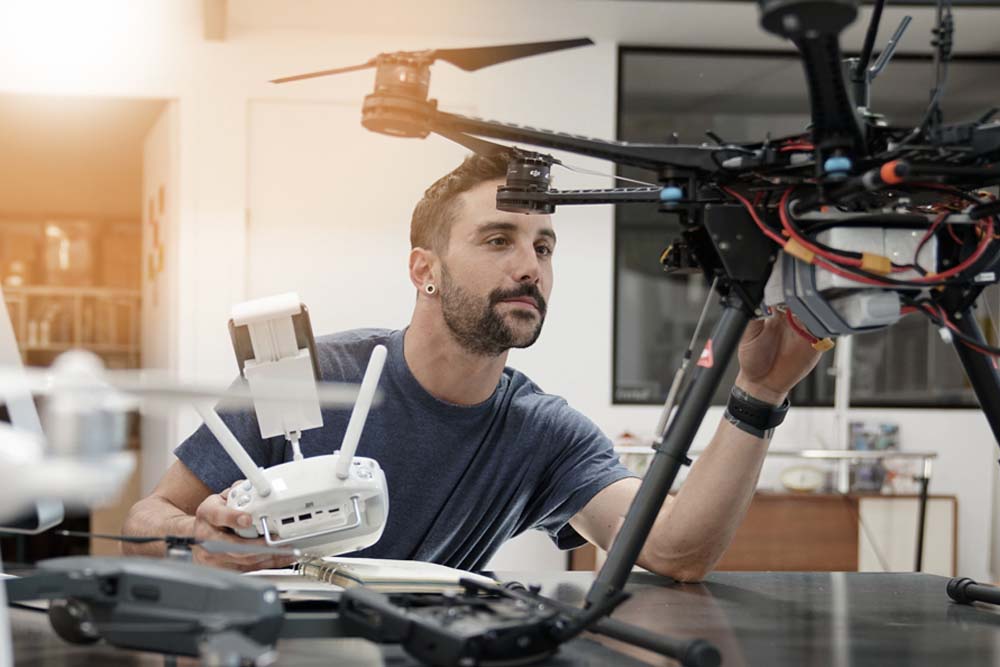Human decision-making and human control are always key for the ministry and that will not change with the introduction of AI. In threatening situations too, humans should always have final control. We do need to have an answer, though, if there are attacks in which the opposing party uses AI technology in autonomous weapons. Cyber-resilience is playing an increasingly important role, as the digital word is becoming the backdrop to attacks more and more often. Deploying AI systems is therefore a subject that is receiving every attention within the defence sector.
Open discussion
At the same time, using AI systems is a subject that inevitably demands discussion, a discussion that the ministry would like to embark upon with society and where the ELSA Labs can play an important role. As well as governmental authorities, centres of expertise and the commercial sector, social organisations and members of the public are also given the opportunity to say what they think attention should be paid to when developing AI systems for defence purposes, and how it can be done responsibly.
Innovation opportunities
The Ministry of Defence is working closely with companies that develop AI systems and other parties involved in developing, producing and implementing those systems. Given that it is technology that adds significantly to our safety, the development of AI systems for specific defence purposes cannot be left to just anyone. Knowledge about how the AI solutions work must stay within our borders too. That can be difficult at times, but the benefit of working this way is that it gives the country good opportunities for innovation.
Cooperation
Not all the AI systems used by the Ministry of Defence fall in the ‘vital technology’ category. There are also applications where the ministry joins existing initiatives, which also explains why the Defence working group is not only actively looking to collaborate with centres of expertise and the commercial sector but also with other the working groups of the Netherlands AI Coalition, such as Health and Care, Mobility, Transport and Logistics, The Built Environment and Ports and Maritime.
Working group
Within the Defence working group, participants collaborate to identify the biggest opportunities and challenges for AI, to bring partners together for cooperation and to work on a programme that focuses on five application areas:
- Unmanned autonomous systems: the key challenges are moving through unknown terrain under threat, collecting information in locations that are dangerous and difficult to reach, and responsibly obstructing the opposing party under meaningful human control. Where armed systems are involved, the ministry backs the recommendations made by the Advisory Council on International Affairs .
- Support can then be given for military decision-making and intelligence, where both hard and soft sensor data are collected and combined to benefit situational awareness, followed by recommendations about the perspectives for taking action for in multi-domain operations.
- Logistics and predictive maintenance, creating a clear picture of the functioning of our own systems and platforms so that maintenance and resupply can be intelligently adjusted to suit.
- Operations: a clear picture of the readiness of personnel and equipment, personalised training and education, effective care, the energy transition and property management are just a few of the topics where the Ministry of Defence expects improvements from using AI.
- Security and operational safety: risk identification and management for personnel and equipment under all circumstances (including for instance when hazardous substances are involved). And that all has to be done within the frameworks of changing legislation.
Naturally, a great deal of attention is paid to data sharing and management, training, robustness, explainability, cyber-resilience, meaningful human control, human/AI teams and the ethical and legal aspects involved in using AI systems. The working group regularly organises meetings around the country to help bring participants and the Ministry of Defence into contact with each other and to encourage cooperation.
If you’re interested in this topic and would like to be actively involved, you can become a participant of the NL AIC and benefit from our Defence expertise and network, and other relevant AI themes.


